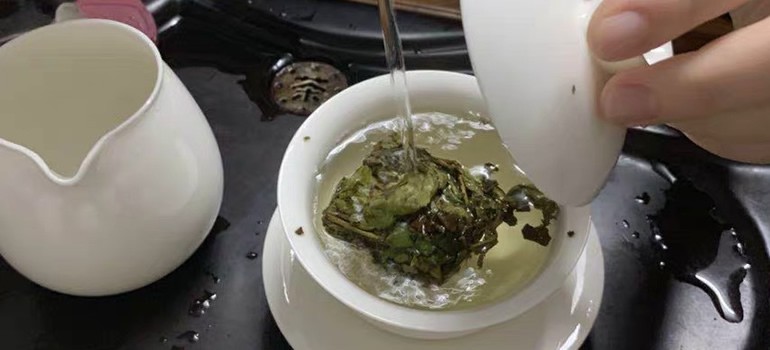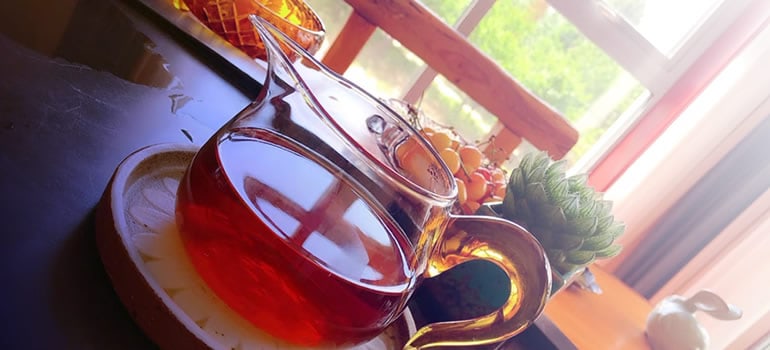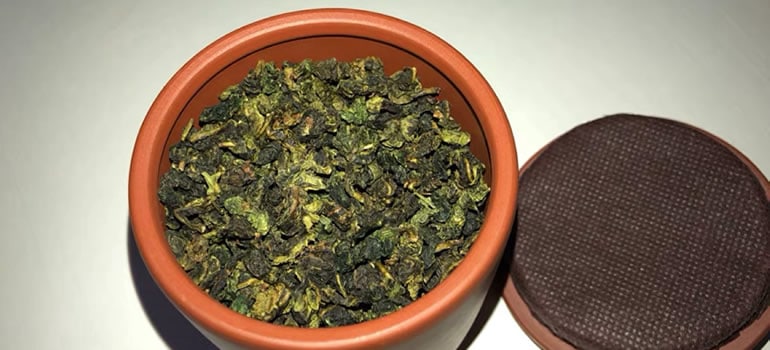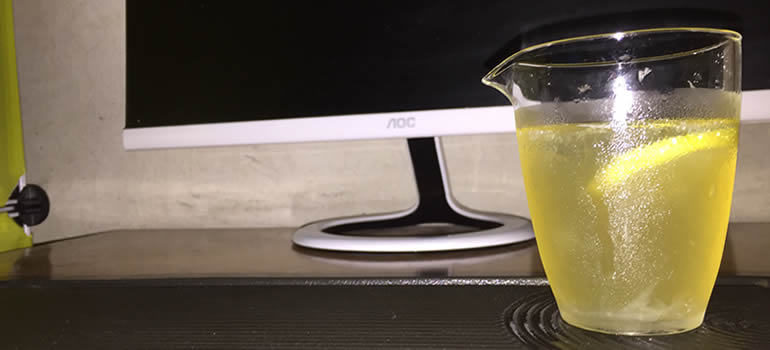
Drinking tea has been something that people have been doing for centuries. And although there may not have been much variety in the tea selections back in the 3rd century, for example, today things are rather different.
In fact, the earliest records of tea drinking were found in medical texts in China, where tea was used for recreational purposes.
And today all of us are well aware that drinking the right type of tea at the right time can help with many different ailments and conditions. It can help you sleep better, it can keep you wide awake and alert, it can reduce pain, and it can even help you study better.
And this is where black tea enters the ring. It is being one of the most popular types of tea dominating the rest. More than 80% of the people that regularly drink tea go for black tea. And with so many people drinking it comes the following question.
When is the best time to drink black tea? The caffeine in black tea can cause sleep disturbance. The best time to drink black tea is in the morning and afternoon in order to get a good energy boost. Drink black tea in-between meals because it may cause stomach upset on an empty stomach.
Of course, there is a lot more to black tea than meets the eye as it may provide us with a whole bunch of other beneficial properties.
Read on as we will explore the best times you may want to have a nice and warm cup of black tea right beside you. Not just time-wise but health-wise as well.
The Best Time of the Day to Drink Black Tea
As long as you drink your black tea in moderation, you can do so without having to worry about any side effects. Black tea is not harmful since it is just an ordinary tea.
However, there are some caveats and exceptions to that.
A few things may lead to black tea, causing you some unwanted side effects. And we will go into more detail now as we explore what happens when we drink black tea during the different times of the day.
Can You Drink Black Tea in the Morning?
The best time of the day to drink black tea is in the morning.
We are well aware of the energy and concentration boosting effects black tea has.
And unsurprisingly this is why most of us will have a cup of black tea early in the morning to help us start our day on the right foot.
Black tea has a high amount of a compound known as catechins. This is a good thing – as catechins are a natural phenol and antioxidant –, but it can also be a bad thing, too. Here’s why.
Drinking a tea that contains high amounts of catechins on an empty stomach may lead to stomach upset, spasms, and it may potentially even damage your liver.
But what this means is that we need to be a bit more conscientious when drinking black tea in the morning.
And don’t get me wrong, black tea is a perfect morning drink.
However, make sure you are not drinking it too early in the morning and not on an empty stomach. Black tea is best consumed around 10 or 11 am in between meals.
And for the early birds out there that like to start their day with a cup of black tea. Have a little snack or a small toast with your tea. It will make a whole world of a big difference.
Can You Drink Black Tea in the Afternoon?
The second best time to drink black tea is in the afternoon.
This is ideal for many of us because black tea also contains caffeine which can really boost our energy levels for the remaining of the day.
However, pay attention to how much black tea you drink a day. Drinking Low to moderate amounts of black tea is usually safe for most healthy adults.
Do not exceed more than four to five cups of black tea per day. Black tea overconsumption may cause a variety of health issues due to high caffeine intake.
Should You Drink Black Tea Before or After Meals
Tea is usually a bit more acidic.
Acidity may have an impact on your digestion and metabolism.
Tea has also been known to reduce the absorption of certain elements like iron, which is a concern for people suffering from iron deficiency.
In order to avoid difficult digestion or iron absorption drink black tea at least one hour after or before eating. That way, you can give your body enough time to absorb and use the vitamins and minerals from the food.
Other Reasons When to Drink Black Tea
You may be surprised to find out that black tea has been backed up by a lot of scientific studies.
Knowing its health properties and effects on the body, you can have a better understanding when you can drink black tea.
When You Want to Lose Weight
Weight loss may be one of the things on your to-do list. In that case, black tea may help. It has prebiotic properties, and it increases the metabolic rates.
One study found out that long term black tea consumption can improve one’s body weight and the distribution of the body fat.
But when is it the best time to drink back tea for weight loss? You can drink black tea for weight loss almost at any time of the day. Feel free to refer to the points we went through above.
Keep in mind that the benefits of black tea to weight loss will be small. For a greater impact and results, it is essential to combine it with a healthy and active lifestyle choices.
When You Want to Improve Your Focus
This is achieved mainly thanks to the high caffeine content in black tea. But that’s not all.
Black tea contains a specific amino acid (L-theanine).
Both L-theanine and caffeine have a very stimulating effect on our ability to focus and stay alert for longer.
This combination of L-theanine and caffeine is considered the reason why we don’t see the energy crash many would normally experience after drinking coffee.
Coffee may have a stronger effect, but the aftermath is also worse compared to black tea.
When You Want to Increase Your Antioxidant Intake
Black tea has been proven to be a rich source of antioxidants.
Multiple types of polyphenols are found naturally in it. These include catechins, tannins, theaflavins, flavonoids, and more. They are believed to provide a number of health benefits that will keep our body healthy and strong.
One study showed the potential benefits of theaflavins in reducing blood sugar levels and cholesterol, while another connected catechins intake with increased fat loss.
When You Want to Improve Your Heart Health
The flavonoids that are contained in black tea may also help with improving the heart health by having a positive effect on lowering blood pressure, and cholesterol and triglyceride levels as well.
One study showed a significant 19% reduction in the risk of developing heart-related diseases.
Flavonoids may work well in conjunction with the theaflavins in promoting fat loss.
When You Want to Reduce the ‘Bad’ Cholesterol
There are at least a few studies that suggest regular black tea consumption can lower the levels of the ‘bad’ cholesterol.
This is the LDL cholesterol, and it has been associated with higher risks of developing heart disease.
Having high levels of LDL cholesterol may lead to plaque deposit build-ups in the arteries, which increases the chances of heart failure and stroke.
When NOT to Drink Black Tea
Now that you better understand when it is best to drink black tea, let’s take a look when you shouldn’t drink it.
Late in the Evening or at Night
As I have pointed out earlier black tea contains high amounts of caffeine.
Although it is not as strong as coffee – since black tea typically contains about half the caffeine of a cup of coffee – it can still provide you with a strong energy kick.
This means that black tea is not suitable for drinking at night or late in the evening. And how late is too late will vary from person to person.
The average cup of coffee usually contains about 95 mg of caffeine, while the average cup of black tea contains about 47 mg.
‘That’s not so bad,’ you may say. But not so fast.
Coffee may provide a stronger effect, but it also wears off faster. While black tea will give you slightly less energy, but it generally lasts longer compared to coffee.
Caffeine and Sleep
So far, you have learned that black tea should not be consumed late in the evening or during the night. Not unless you are pulling an all-nighter.
In one study, scientists have discovered that caffeine can lengthen the time before you fall asleep. Caffeine intake of a 2.9 milligrams per kilogram of body weight 3 hours before habitual bedtime resulted in 40 minutes delay. But things don’t stop here.
Another study discovered that consuming caffeine even 6 hours before you go to sleep may have adverse effects on your total sleep hours, and reduce them by 1 hour on average.
And the older you get, the worse the aftermath of drinking caffeine-rich beverages may be.
This is why you will find that most experts are suggesting and recommending people not to drink caffeine-rich beverages – black tea included – as late as 6 hours before bedtime. And there is one more thing.
Caffeine Half-Life
“But wait,” you may say. “I drank a cup of black tea a mere hour ago, and I no longer feel anything. Can’t I just drink it one hour before my bedtime? The effect will be gone by then. Right?”
Here’s the thing. Even though you may no longer feel the slight buzz from the caffeine in the black tea, it doesn’t mean that the caffeine is not in your body.
There is a thing called Caffeine half-life. This is the time the body needs to get rid of half of the caffeine in it.
The average half-life of caffeine is about 5 to 6 hours. I say average because this time can vary a lot. And I really mean a lot. In some instances, it can go up as much as 15 hours.
Individual predispositions and factors will affect the time your body will need to eliminate all the caffeine in your system.
Things like your weight, age, and liver health (because caffeine is metabolized by the liver) can affect the caffeine half-life. Medications and pregnancy status will also play a significant role.
So what does that mean for us?
It means that if you drank 80 mg of caffeine now, after 5 hours, you would still have about half of that running in your system or about 40 mg.
Caffeine Sensitivity
Although there are people out there that can have a big cup of coffee right before going to bed and fall asleep immediately, there is also another group of people that are hypersensitive to caffeine.
For the more sensitive to caffeine out there, a black tea consumed late in the evening or right before bedtime may be the worst thing to do.
In fact, since this also means that you may be metabolizing caffeine at a slower rate, even drinking a cup of black tea as late as the afternoon may result in adverse effects.
This can easily reduce the quality or even and length of your sleep that night.
For the hypersensitive to caffeine, it is usually recommended to either reduce their caffeine content to a minimum or not consume it at all.
Additionally consuming too much of black tea may lead to heart palpitations, restlessness, and even anxiety. So this begs the next question.
How Much Black Tea Is Too Much?
Individual predispositions will play a huge role.
I, for example, can drink a big cup of tea and go to bed no problem, while others may have trouble sleeping the whole night after drinking their tea in the afternoon.
According to some sources drinking more than four or five cups of black tea a day may not be a good idea as it may cause various health problems and complications.
To better illustrate this, let’s consider the daily caffeine recommendations:
- Up to 400 mg of caffeine per day is generally considered to be safe for a healthy adult.
- Kids ages 12 to 18 should not consume more than 100 mg of caffeine per day.
- Kids under 12 should not be consuming caffeine.
- Pregnant women should lower their caffeine consumption or avoid it altogether. And they should speak with a medical professional in order to establish the right amount of caffeine for them.
Taking these average numbers into consideration, let’s take another look at the caffeine content in black tea.
The average caffeine content of black teas is considered to be 47.4 mg per standard 8 oz cup of tea.
However, depending on the tea variety, brewing temperature, steeping time, and amount of actual tea used this number can also vary a lot. The range can be as broad as 40 to 75 mg.
Another thing that we should generally avoid is mixing black tea with other high-caffeinated drinks like coffee, for example.
This can be very dangerous as we can get over that daily caffeine limit quite quickly without even realizing it.
Side Effects of Drinking Too Much Black Tea
Some common side effects of consuming too much caffeine from black tea are:
- Restlessness;
- Lack of sleep;
- Jitteriness;
- Anxiety;
- Increased blood pressure;
- Nervousness;
- Increased urination;
- Muscle twitches;
- Headaches;
- Palpitations.
A word of caution: Black tea may interact with certain medications and blood tests. Make sure to check with your doctor and inform them in case you are taking any medications and supplements.
When to Drink Decaf Black Tea?
If you are noticing problems associated with the caffeine in the regular black tea, then going decaf may be a good option for you.
Drinking decaf black tea is an excellent way to lower your overall caffeine intake but still take advantage of the black tea’s health properties.
One thing worth noting though.
Decaf doesn’t mean completely free from caffeine. Decaf black tea still contains tiny amounts of caffeine. Usually, just a few percent of its original caffeine content will remain in it. Decaf black tea on average will contain about 2 to 10 mg of caffeine per a standard 8-oz cup of tea.
This means that despite the low caffeine content, we should still avoid drinking it before bedtime or late at night.
The best time to have decaf black tea is during the morning and afternoon.
If you really want a tea that you can drink right before going to bed, consider preparing a nice and warm cup of chamomile or peppermint tea, both of which are considered great late-night teas.




